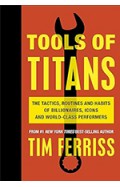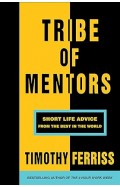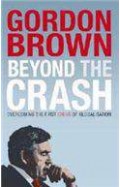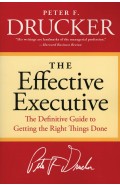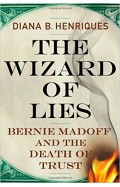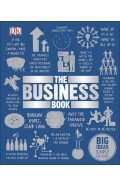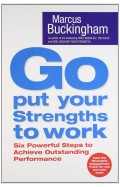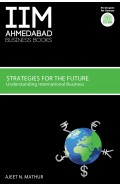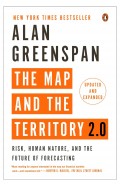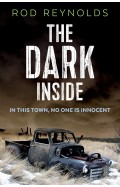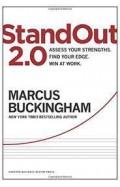- Home
- Education and Reference
- Law
- A Brief Guide to Business Classics: From The Art of War to The Wisdom of Failure
A Brief Guide to Business Classics: From The Art of War to The Wisdom of Failure
By: James M. Russell
-
Rs 1,015.75
- Rs 1,195.00
- 15%
You save Rs 179.25.
Due to constant currency fluctuation, prices are subject to change with or without notice.
The world of business books is a curious place where one can find everyone from great businesspeople like Warren Buffett, Steve Jobs and Elon Musk, to the most spectacular business failures such as Enron and the sub-prime business market. There are geniuses, hard workers, academics and entrepreneurs as well a few charlatans and hucksters. There's even room for Donald Trump. The 70 titles covered were chosen with various parameters in mind: to cover a range of areas of business, from sales and marketing to negotiation, entrepreneurship to investing, leadership to innovation, and from traditional and corporate models of business to start-up manuals and alternative angles on the subject. Obvious bestselling titles such as How to Make Friends and Influence People or 7 Habits of Highly Effective People have been included, but there are also those books of more questionable value often included on recommended lists of business classics, included here by way of warning. The chosen books also cover a wide span of time and acknowledge that some of the most powerful or entertaining insights into business can be found in texts that aren't perceived as being 'business books', for instance The Art of War, Microserfs, Thinking Fast and Slow and The Wealth of Nations.The selection includes a good range of the most recent successes in business publishing with which readers may be less familiar. The titles are arranged chronologically, allowing the reader to dip in, but also casting an intriguing light on how trends in business titles have changed over the years. Among these titles, you will find expert advice, based on solid research (for instance The Effective Executive or Getting to Yes), and inspirational guides to setting up businesses and running them on sound foundations (such as True North, Crucial Conversations, or We) alongside dubious management manuals that take a single flawed idea and stretch it out to the point of absurdity. The hope is that the reader will be inspired to read the best of these titles, ignore the worst of them, and will come away with at least a basic idea of what each has to teach us about business.
The world of business books is a curious place where one can find everyone from great businesspeople like Warren Buffett, Steve Jobs and Elon Musk, to the most spectacular business failures such as Enron and the sub-prime business market. There are geniuses, hard workers, academics and entrepreneurs as well a few charlatans and hucksters. There's even room for Donald Trump. The 70 titles covered were chosen with various parameters in mind: to cover a range of areas of business, from sales and marketing to negotiation, entrepreneurship to investing, leadership to innovation, and from traditional and corporate models of business to start-up manuals and alternative angles on the subject. Obvious bestselling titles such as How to Make Friends and Influence People or 7 Habits of Highly Effective People have been included, but there are also those books of more questionable value often included on recommended lists of business classics, included here by way of warning. The chosen books also cover a wide span of time and acknowledge that some of the most powerful or entertaining insights into business can be found in texts that aren't perceived as being 'business books', for instance The Art of War, Microserfs, Thinking Fast and Slow and The Wealth of Nations.The selection includes a good range of the most recent successes in business publishing with which readers may be less familiar. The titles are arranged chronologically, allowing the reader to dip in, but also casting an intriguing light on how trends in business titles have changed over the years. Among these titles, you will find expert advice, based on solid research (for instance The Effective Executive or Getting to Yes), and inspirational guides to setting up businesses and running them on sound foundations (such as True North, Crucial Conversations, or We) alongside dubious management manuals that take a single flawed idea and stretch it out to the point of absurdity. The hope is that the reader will be inspired to read the best of these titles, ignore the worst of them, and will come away with at least a basic idea of what each has to teach us about business.
A Brief Guide to Business Classics: From The Art of War to The Wisdom of Failure
By: James M. Russell
Rs 1,015.75 Rs 1,195.00 Ex Tax :Rs 1,015.75
A Brief Guide to Spiritual Classics
By: James M. Russell
Rs 1,440.75 Rs 1,695.00 Ex Tax :Rs 1,440.75
A Brief Guide to Philosophical Classics - Paperback
By: James M. Russell
Rs 2,515.50 Rs 2,795.00 Ex Tax :Rs 2,515.50
Zubin Mehta: A Musical Journey (An Authorized Biography)
By: VOID - Bakhtiar K. Dadabhoy
Rs 892.50 Rs 1,050.00 Ex Tax :Rs 892.50
Tools of Titans The Tai Routines and Habits of Billionres Icons and World Class Performers
By: Timothy Ferriss
Rs 3,865.50 Rs 4,295.00 Ex Tax :Rs 3,865.50
Tribe of Mentors Short Life Advice from the Best in the World
By: Timothy Ferriss
Rs 3,650.75 Rs 4,295.00 Ex Tax :Rs 3,650.75
Beyond The Crash: Overcoming The First Crisis Of Globalisation
By: Gordon Brown
Rs 335.75 Rs 395.00 Ex Tax :Rs 335.75
Strategies for the Future Understanding International Business
By: Ajeet N. Mathur
Rs 2,035.75 Rs 2,395.00 Ex Tax :Rs 2,035.75
The Map and the Territory 2.0 RiskHuman Natureand the Future of Forecasting
By: Alan Greenspan
Rs 1,100.75 Rs 1,295.00 Ex Tax :Rs 1,100.75
StandOut 20 Asse Your Strengths Find Your EdgeWin at Work
By: Marcus Buckingham
Rs 1,695.75 Rs 1,995.00 Ex Tax :Rs 1,695.75
Tools of Titans The Tai Routines and Habits of Billionres Icons and World Class Performers
By: Timothy Ferriss
Rs 3,865.50 Rs 4,295.00 Ex Tax :Rs 3,865.50
Tribe of Mentors Short Life Advice from the Best in the World
By: Timothy Ferriss
Rs 3,650.75 Rs 4,295.00 Ex Tax :Rs 3,650.75
No recently viewed books available at the moment.
Zubin Mehta: A Musical Journey (An Authorized Biography)
By: VOID - Bakhtiar K. Dadabhoy
Rs 892.50 Rs 1,050.00 Ex Tax :Rs 892.50
A Brief Guide to Business Classics: From The Art of War to The Wisdom of Failure
By: James M. Russell
Rs 1,015.75 Rs 1,195.00 Ex Tax :Rs 1,015.75
A Brief Guide to Spiritual Classics
By: James M. Russell
Rs 1,440.75 Rs 1,695.00 Ex Tax :Rs 1,440.75
A Brief Guide to Philosophical Classics - Paperback
By: James M. Russell
Rs 2,515.50 Rs 2,795.00 Ex Tax :Rs 2,515.50
Tools of Titans The Tai Routines and Habits of Billionres Icons and World Class Performers
By: Timothy Ferriss
Rs 3,865.50 Rs 4,295.00 Ex Tax :Rs 3,865.50
Tribe of Mentors Short Life Advice from the Best in the World
By: Timothy Ferriss
Rs 3,650.75 Rs 4,295.00 Ex Tax :Rs 3,650.75












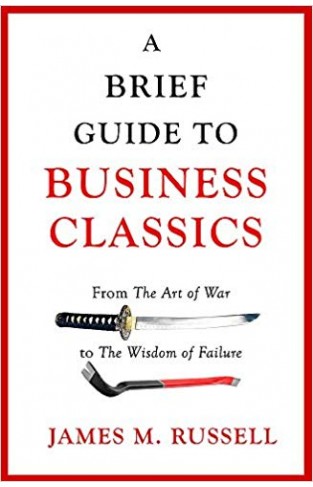

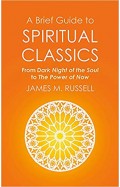

-120x187.jpg?q6)






